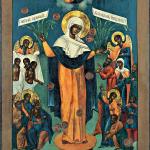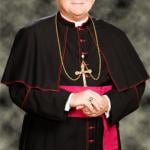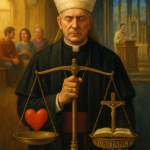Last updated on: November 5, 2014 at 11:35 am
By
CNA Daily News
Lahore, Pakistan, Nov 5, 2014 / 04:35 am (CNA/EWTN News).- The reported killing of a Christian couple in Pakistan by a mob on Tuesday has sparked calls for the nation's government to protect its people, and especially its minorities. “The burning alive of a Christian couple is a test case for our government. Our government must provide protection to all citizens and especially to the poor and downtrodden Christians,” Fr. James Channan, O.P., director of the Peace Center Lahore, told CNA Nov. 4 in an email interview. That morning, Shahzad Masih and his wife Shama, a Christian couple, were allegedly killed and their bodies burned by a mob after they were accused of desecrating the Quran. The couple lived in Kot Radha Kishan, a city located nearly 40 miles southwest of Lahore. Shama was pregnant, and the couple had three additional children. They were reported to be in their 20s or 30s. Fr. Channan said he is “under a deep shock and disbelief” because of the incident. “I demand from the government and law enforcing agencies of Pakistan that justice must be done and culprits must be punished.” The Masihs' bodies were allegedly burned in a brick kiln where they had worked, but there are varying reports of the details of the case. Legal Evangelical Association Development, a Pakistani minority rights group, was told by Muhammad Rafique, one of the Masihs' coworkers, that following the recent death of Shahzad's father, Shama collected some of his things, burning them and throwing the ashes in the garbage. According to Rafique, their employer noticed this, and charged that some of the burnt pages were from the Quran; he then detained them. They owed him money, and he refused to release them without being paid. It was then announced from local mosques that the couple had desecrated the Quran, and a mob forced their way into the room where the Masihs were held, beat them, and then burnt them alive in the kiln's furnace. Pakistan Today was told by one of the Masih's relatives that “a Muslim mob of about 3,000-4,000 people attacked the couple’s quarters at the brick kiln and tortured the couple to death. They later threw their bodies into the kiln and completely burnt them.” Many Christians have fled the area. The BBC was told by a security official that police had tried to save the Masihs, “but they were outnumbered and attacked by the angry crowd.” A local policeman, Jawad Qamar, told Pakistan Today that 48 had been arrested in connection with the murders, and that further efforts are being made. Pakistan Today also wrote that “Punjab Chief Minister Shahbaz Sharif has constituted a three-member committee to fast track the investigation of the killings and ordered police to beef up security at Christian neighbourhoods in the province.” Fr. Channan lamented that the couple was burned to death “on mere accusation of burning some pages which contained come verses from the Holy Quran. I am 100 percent sure that it was not a deliberate act, if any from Shama. They would have not dared to do so knowing the consequences. It is a false accusation. To burn alive on mere accusation by a mob of fanatic Pakistani Muslims is a barbaric act in the modern age: I condemn it in the strongest words possible.” Pakistan's state religion is Islam, and around 97 percent of the population is Muslim. The nation has adopted blasphemy laws which impose strict punishment on those who desecrate the Quran or who defame or insult Muhammad. The blasphemy laws are said to be often used to settle scores or to persecute minorities. “It is worse when fanatics take these laws in their hands and beat or kill on simple accusations,” Fr. Channan said. “It has become a tool to persecute Christians and other minorities. Very often police does not provide protection to the accused due to the angry mob.” Fr. Channan added that the blasphemy laws have “made Christians vulnerable and insecure.” Currently, he reported, there are some 1,100 cases registered under these laws, with around 950 of the accused either Muslim or Ahmadiyya, a heterodox Muslim movement. “Around 135 are Christians,” he said, and the remainder are Hindu. Members of minority religions, therefore, are disproportionately affected by the blasphemy laws. While non-Muslims constitute only 3 percent of the Pakistani population, 14 percent of blasphemy cases have been levied against them. “The misuse of these laws is very common,” Fr. Channan said. “Once a person is accused he or she cannot live in Pakistan, even if the court will set that person free. Therefore it is very important for the government of Pakistan to prevent the misuse these laws and punish those who falsely accuse.” The priest said there is “a grave need to educate people to live in harmony, respect and not to take such laws in their own hands. Let the courts decide such cases without any pressure.” Last month, the Lahore High Court rejected the appeal of Asia Bibi, a Christian woman, who has been sentenced to death under the blasphemy laws. According to the Centre for Legal Aid Assistance and Settlement, some 25 mullahs were present at the court “to apply pressure and push for the sentence … to be upheld.” And in May, a lawyer defending a professor accused of blasphemy was shot dead in Multan. In 2012, a teenaged Christian girl, Rimsha Masih, who has Down syndrome, was arrested under the blasphemy laws, and released on bail. She and her family had to be relocated because of threats against them. And in 2011, two politicians – Salmaan Taseer, a Muslim, and Shahbaz Bhatti, a Catholic – were assassinated for opposing the blasphemy laws. The U.S. Commission on International Religious Freedom's 2013 report cited “chronic” sectarian and religiously motivated violence in the country, as well as the Pakistan government perpetrating and tolerating “systematic, ongoing and egregious violations of freedom of religion or belief.” Fr. Channan said that “I will be going to visit (Kot Radha Kishan) tomorrow (Wednesday) and will express solidarity with the grieving family and raise voice for speedy trial of those responsible for this barbaric act of murder.” Read more















